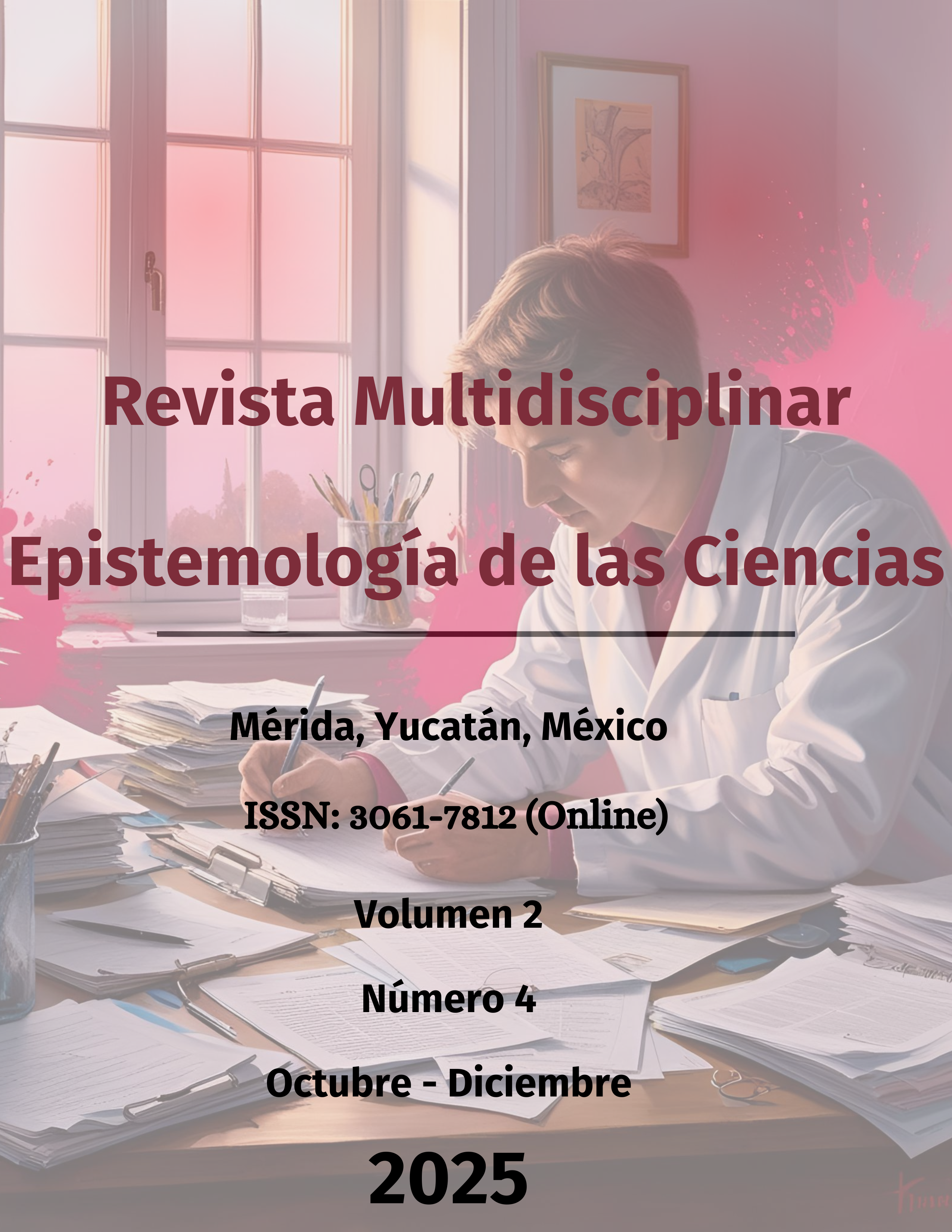Challenge-based learning to promote resilience and peaceful coexistence in diverse educational environments
DOI:
https://doi.org/10.71112/9zevwv94Keywords:
challenge-based learning, resilience, peaceful coexistence, active methodologies, secondary educationAbstract
This study analyzed the impact of Challenge-Based Learning (CBL) as a pedagogical strategy to promote resilience and peaceful coexistence in students from diverse educational backgrounds. A quasi-experimental design with a mixed approach was applied to two high school groups: an experimental group that participated in CBL activities aimed at collaborative problem-solving related to school climate, and a control group that followed a traditional methodology. The intervention lasted eight weeks and included pre- and post-test measurements of resilience and coexistence, complemented by focus groups and observations for qualitative analysis. The results showed significant improvements in resilience and prosocial behaviors, as well as a reduction in antisocial behaviors in the experimental group compared to the control group. These findings support the potential of CBL as an active methodology that promotes learning, socio-emotional development, and school cohesion. It is suggested that teacher training be strengthened and longitudinal studies conducted to ensure the sustainability of the positive effects.
Downloads
References
Afzali, L., Asadi, S., Barzegary, L., & Kahrizi, M. (2024). Development and validation of School Resilience Questionnaire (SRQ) for Iranian adolescents. Frontiers in Psychology, 15, 1310781. https://www.ncbi.nlm.nih.gov/pmc/articles/PMC10795288/ DOI: https://doi.org/10.1186/s40359-023-01496-6
Allen, M. (2015). Promoting resilience in diverse classrooms. PMC. https://www.ncbi.nlm.nih.gov/pmc/articles/PMC5766288/
Building resilience through peace education: Perspectives of teacher educators. (2025).
Cai, C., et al. (2025). School-based interventions for resilience in children and adolescents. PMC. https://pmc.ncbi.nlm.nih.gov/articles/PMC12127306/?utm_source=chatgpt.com
Creswell, J. W., & Creswell, J. D. (2023). Research design: Qualitative, quantitative, and mixed methods approaches (6.ª ed.). SAGE. https://collegepublishing.sagepub.com/products/research-design-6-270550
Deinhammer, J. (2024, abril 3). Engaging students with challenge based learning. Edutopia.https://www.edutopia.org/article/challenge-based-learning-engages-students/ DOI: https://doi.org/10.1007/978-981-96-0198-1_1
Franco, E., Coterón, J., & García-González, L. (2023). Challenge-based learning approach to teach sports. Journal of Hospitality, Leisure, Sport & Tourism Education, 33, 100435. https://www.sciencedirect.com/science/article/pii/S1473837623000163 DOI: https://doi.org/10.1016/j.jhlste.2023.100432
Frontiers. (2023). Effectiveness of resilience-based interventions in schools: Meta-analysis.https://www.frontiersin.org/journals/psychology/articles/10.3389/fpsyg.2023.1211113/full?utm_source=chatgpt.com
Galdames-Calderón, M., Lavín-Elgueta, A., & Mella-Nasari, C. (2024). Systematic review: Revisiting challenge-based learning. Education Sciences, 14(9), 1008. https://doi.org/10.3390/educsci14091008 DOI: https://doi.org/10.3390/educsci14091008
Georgiou, D., Ioannou, A., & Mikropoulos, T. (2025). Exploring student, lecturer, and stakeholder challenges in challenge-based learning. Active Learning in Higher Education. https://doi.org/10.1177/14697874251326099 DOI: https://doi.org/10.1177/14697874251326099
González Moreno, A., & Molero Jurado, M. del M. (2024). Intervention programs for the prevention of bullying and the promotion of prosocial behaviors in adolescence: A systematic review. Social Sciences & Humanities Open, 10(2), 100954. https://doi.org/10.1016/j.ssaho.2024.100954 DOI: https://doi.org/10.1016/j.ssaho.2024.100954
Hall, J. R., Blakey, J., & Boulton, K. (2024). How are we measuring resilience in children? Mental Health & Prevention, 35, 200351. https://doi.org/10.1016/j.mhp.2024.200351 DOI: https://doi.org/10.1016/j.mhp.2024.200351
Helker, K., et al. (2025). A framework for capturing student learning in challenge-based learning. International Journal of Education. https://doi.org/10.1177/14697874241230459 DOI: https://doi.org/10.1177/14697874241230459
Höffken, J., van der Wal, M. M., & Kraker, J. (2024). Engaging for the future: Challenge-based learning and sustainability transitions. Sustainable Earth Reviews, 3, 6. https://sustainableearthreviews.biomedcentral.com/articles/10.1186/s42055-024-00087-6 DOI: https://doi.org/10.1186/s42055-024-00087-6
Ijadi-Maghsoodi, R., et al. (2017). Adapting and implementing a school-based resilience curriculum. PMC. https://www.ncbi.nlm.nih.gov/pmc/articles/PMC5909715/
Llistosella, M., et al. (2024). Effectiveness of a resilience school-based intervention in at-risk adolescents. PMC. https://pmc.ncbi.nlm.nih.gov/articles/PMC11534671/?utm_source=chatgpt.com
Llistosella, M., Goni-Fuste, B., et al. (2023). Effectiveness of resilience-based interventions in schools: A systematic review and meta-analysis. Frontiers in Psychology, 14, 1211113. https://doi.org/10.3389/fpsyg.2023.1211113 DOI: https://doi.org/10.3389/fpsyg.2023.1211113
Merk, V. (2022). Challenge-based learning as a tool for diversity & inclusion in higher education [PDF]. ResearchGate.
Olivares, S. L. O. (2018). Aprendizaje basado en retos [Documento PDF]. Webfepafem-Pafams. https://www.webfepafem-pafams.org/wp-content/uploads/2023/01/Aprendizaje-Basado-en-RETOS.pdf
Özel, D. (2025). Peace education program adaptation: A sustainable way … Journal of Education and Culture Studies (JECS). https://www.ejecs.org/index.php/JECS/article/view/2142
Purwanto, Y., Fitriani, D., & Yusuf, A. A. (2023). The peace education concept and practice at universities. Cogent Education, 10(1), 2260724. https://doi.org/10.1080/2331186X.2023.2260724 DOI: https://doi.org/10.1080/2331186X.2023.2260724
Ruiz-Hernández, J. A., Llor-Esteban, B., Pina-López, A., et al. (2022). Evaluation of school climate behaviors in the school context: The CONVIVE model. Youth & Society, 54(8), 1486–1515. https://doi.org/10.1177/0044118X21997852 DOI: https://doi.org/10.1177/0044118X21997852
Salvador-García, C., Chiva-Bartoll, O., Maravé-Vivas, M., & Gil-Gómez, J. (2023). Service-learning in physical education teacher education: A retrospective exploratory study to examine its challenges. Teaching and Teacher Education, 135, 104350. https://doi.org/10.1016/j.tate.2023.104350 DOI: https://doi.org/10.1016/j.tate.2023.104350
Santos-Díaz, A., et al. (2024). Implementing a challenge-based learning experience in a blended format. BMC Medical Education. https://bmcmededuc.biomedcentral.com/articles/10.1186/s12909-024-05462-7?utm_source=chatgpt.com DOI: https://doi.org/10.1186/s12909-024-05462-7
Schutte, B. G. (2025). Exploring the implementation of challenge-based learning in secondary education. Environmental Education Research, 31(2), 215–232. https://doi.org/10.1080/13504622.2025.2458723 DOI: https://doi.org/10.1080/13504622.2025.2458723
Tang, A. C. Y., Chan, Z. C. Y., & Wong, C. L. (2024). Preliminary effect of challenge-based learning on multidisciplinary collaboration among nursing students: A quasi-experimental study. Clinical Simulation in Nursing, 86, 1–9. https://www.sciencedirect.com/science/article/abs/pii/S1557308724001136
Valarezo, J. E. G. (2025). El aprendizaje basado en retos como estrategia. Revista SAGA.
Van den Beemt, A., Krahmer, E., & van der Blij, M. (2022). Conceptualising variety in challenge-based learning: Introducing the CBL-compass. European Journal of Engineering Education, 48(6), 1145–1168. https://doi.org/10.1080/03043797.2022.2078181 DOI: https://doi.org/10.1080/03043797.2022.2078181
Downloads
Published
Issue
Section
License
Copyright (c) 2025 Multidisciplinary Journal Epistemology of the Sciences

This work is licensed under a Creative Commons Attribution 4.0 International License.











